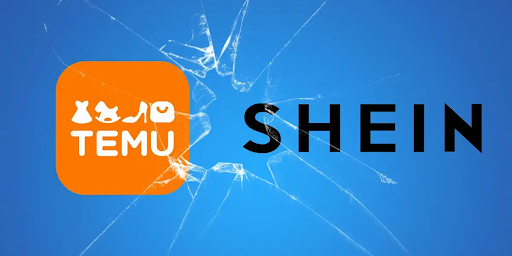
What is AI?
Artificial Intelligence is technology that is used to simulate human intelligence. Created in 1956 by Alan Turing, the first ideas of AI suggested that computers should be able to possess the same problem solving skills as the human mind. Over the past few decades, the industry of Artificial Intelligence has grown and the technology is now put to use in many ways.
AI is used in a wide variety of fields including banking, engineering, entertainment, and marketing. In the medical and healthcare field, scientists predict that artificial intelligence will vastly accelerate the drug-development process and will become much more relied on.
Artificial Intelligence also is used in common home appliances like refrigerators, web-connected vacuum cleaners, watches, phones, and air conditioners. It is implemented in washing machines, ovens, and toasters.

Additionally, almost every website or program has added an AI feature for their users. Many social media apps have even started to integrate AI within their applications. One of the most popular social media services, Snapchat, recently added an “AI Bot” that users can ask questions to or chat with.
The uses of Artificial Intelligence are absolutely endless and will continue to grow. However, as it becomes more integrated into society, questions are posed about its limitations. What is the extent to which people should use AI in their daily lives? This question is asked in the recent epidemic of the use of AI in a school environment.
The Use of AI in Schools:
In the past couple of years, the use of AI in schools has been one of the biggest concerns for teachers. Many students have been taking advantage of AI resources like Chat GPT and Snapchat’s “AI Bot” and using them to write their essays, come up with answers to their homework questions, or cheat on other school work.
Pentucket English teacher Andrew Casey deals with this issue very often in his classroom. “Usually, if a kid is struggling, they resort to using AI. Especially if the writing assignment is hard and bad grades are on the line, then they’re faced with a decision to make. I think it’s tempting for them to take the shortcut, and I understand that. I don’t see it much on regular assignments, but anything that involves a good amount of writing is when the choice is made.”
As far as detecting AI within the students’ work, Casey mentioned that teachers have an easier time identifying it than students may think. “There is a website called GPT Zero that teachers can use, which is pretty accurate and can detect AI really well. I also have to trust my intuition. In a situation where the student is denying that they used it, I compare it to another piece of their work which may look very different. Then at least I get to show the student why I am suspicious. The AI also doesn’t have a “soul”, which makes it easier to detect. Usually, the topics that we write about in class are very specific; almost too specific to put into ChatGPT. It is also easy to tell that a student used it if the ideas in the student’s essay are very different from what they contribute to our class discussions.”
To Learn or Not to Learn?
A big concern that many teachers face with their students using Artificial Intelligence is that the students do not have the opportunity to actually learn.

Pentucket English teacher Elisa Kobuskie expresses her concerns about her students lacking writing skills. “The thing is, they need to truly develop their skills. [Students] won’t be able to learn the correct skills if they are dependent on something else. Then, when I have them write by hand, they have trouble because they haven’t been practicing their skills. It’s obvious to me that they have been relying on outside sources. That even goes for applications like Grammarly Plus. Kids need to be able to do things on their own. ”
She says, “Some of the kids are so dependent on looking things up that they don’t even know what is right. When a student doesn’t know how a paragraph is supposed to be formatted, they will just copy from AI without even knowing if it’s what I’m looking for.”
On the other hand, Pentucket sophomore Allie Gagnon brought up the point that “[AI] can teach students about a topic they don’t know. It sure has helped some kids complete their work but learn at the same time.” AI can be an infinite well of knowledge when used correctly and can either enhance learning or be a burden to it.
Competitive Element in the Classroom:
There is also the argument that the availability of AI to students reduces competitiveness in school. Pentucket sophomore Maddy Grimes argues that “The kids that don’t use [Artificial Intelligence] are putting in more work than the kids that are. One student could put hours into an essay, while another student could just take 5 or 10 minutes to have AI write the essay for them. If they ultimately get the same grade, I think that is unfair.”

If both the hardworking student and the AI user receive the same grade, it makes it harder for kids with natural ability and a hard work ethic to show off their skills and accomplishments. It reduces the differentiating factors between students who put in the work to perform better and the kids who use AI to cheat.
Is Artificial Intelligence Really That Big of a Deal?
AI isn’t always such a hot-button issue. Many students could care less and could go either way when it comes to the use of Artificial Intelligence in school.
Pentucket sophomores Bella Poore and Gavin Jalbert do not have very passionate opinions on the use of AI. Both students noted that while it could be used as a helpful source, it could also go the other way around. “The students and teachers could use AI as a resource, but I think it’s better to have a real-life person to ask questions to,” Jalbert said.
Poore similarly views AI and states, “Sometimes it’s useful and can be funny to play around with. I’ve never really used it besides when I’m joking around with my friends, but I could go either way on it. Personally, it hasn’t positively or negatively affected me. I believe that it’s used for good in some cases and differently in others. It all depends.”
AI isn’t typically looked at as either a good or bad thing. However, there are many people who don’t mind AI but don’t completely support it either. Like many tools on the internet, a good amount of people just use it for fun.
A Positive Perspective:

Some Ivy League schools are starting to suggest that the use of AI in the classroom isn’t such a bad thing. Instead of trying to get rid of AI, Harvard professor Houman Harouni believes that it should be used within the classroom in a healthy manner.
Some ideas he brought up were for students to use AI for their simple questions, along with having them use AI to enhance their imagination while learning.
Harouni believes that instead of pretending AI doesn’t exist, teachers should try and teach students to work alongside AI instead of relying on it like a crutch.
From a futuristic standpoint, AI is predicted to become much more integrated into careers and jobs. It has the potential to highly improve the quality of work, and careers like healthcare and finance could be significantly benefited.
Instead of teaching students to work against Artificial Intelligence, the solution might be for teachers to educate their students on how to work with it and use it to their own advantage. Gagnon notes that “AI could be used in any career, and I can see myself working with it in my future job.”
As students start to pursue their careers, familiarity with AI could be a very helpful skill and give them the opportunity to thrive in the workforce.
To Wrap Things Up:
Artificial Intelligence is a powerful technological force. It produces speedy and accurate results that professionals and workers can use to their advantage, and has unlimited potential in all work fields.
However, this does not mean that people should freely use AI for everything they need. With a severe dependency on it, people won’t be able to learn and grow. In the school environment, learning how to use AI as a teaching tool instead of something that does homework for you should be everyone’s priority.
As Artificial Intelligence integrates itself more into society, it is clear that its role is largely growing. At this point, people will have to learn to live with it and work with it. Ignoring the presence of AI is only going to put people further behind as the rest of society grows with it.
With its many pros and cons, it is evident that AI is going to shape our future. Ultimately, it will take the people who use it to decide what that future looks like.



















Morgan • May 21, 2024 at 12:06 pm
I feel like these days AI has become a big issues. personally I find it scary that this robot knows absolutely everything. In the artical it talks about how I can be useful but also cant be taken advantage of. reading some of the quotes that teachers have said make lots of sense. I would see with AI should be such a concern in English classes.